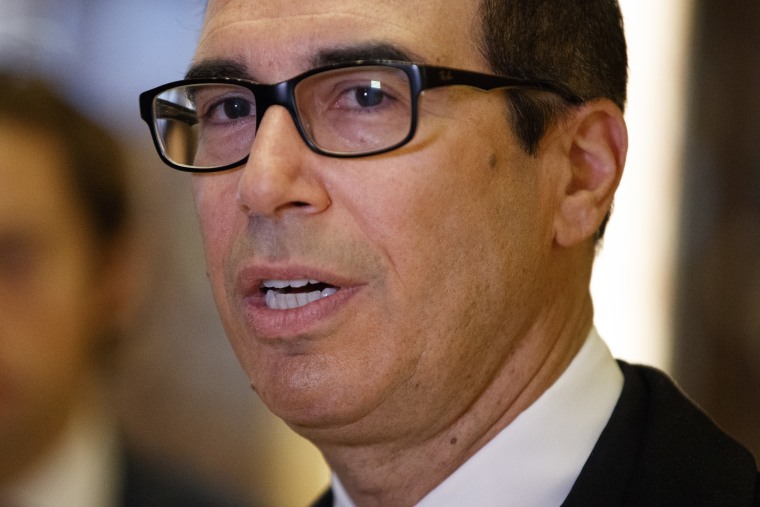Treasury Secretary Steven Mnuchin said Thursday that he wants to see "very significant" tax reform passed before Congress' August recess, in what could prove a tough task as lawmakers work through a complex agenda.
"We want to get this done by the August recess. We've been working closely with the leadership in the House and the Senate and we're looking at a combined plan," he told CNBC in his first television interview since assuming office.
President Donald Trump has repeatedly drilled pledges for tax reform and regulatory cuts since he took office, injecting optimism into business executives and investors. He has promised to detail a tax plan in the coming weeks, without saying much about whether it is a version of his proposal outlined during the campaign or if it will resemble House Republicans' plan.
Mnuchin said the administration is "primarily focused on a middle income tax cut and a simplification for business." He reiterated what he told CNBC in November that he is focused on any tax cuts for the wealthy getting canceled out with closed loopholes.
The new Treasury secretary also said the administration still aims for "sustainable growth of 3 percent or more." He said he expects to hit that mark more toward the end of next year.
He also addressed so-called border adjustment, a key provision of the House Republican tax plan. He said that "we're looking at it," noting that the plan has "interesting aspects" but also said "there are some concerns."
Mnuchin echoed other Trump administration officials by saying the tax plan should not necessarily be judged by how much the United States tax revenue drops but by how much economic growth the reform could create. Critics on both sides of the aisle have raised concerns that the plan would not be revenue neutral, meaning that any tax cuts are canceled out by closing existing loopholes.
He touted the Trump administration's own dynamic scoring, which takes into account economic growth.
